I always wanted to own a Multitech (nowadays: Acer) Microprofessor
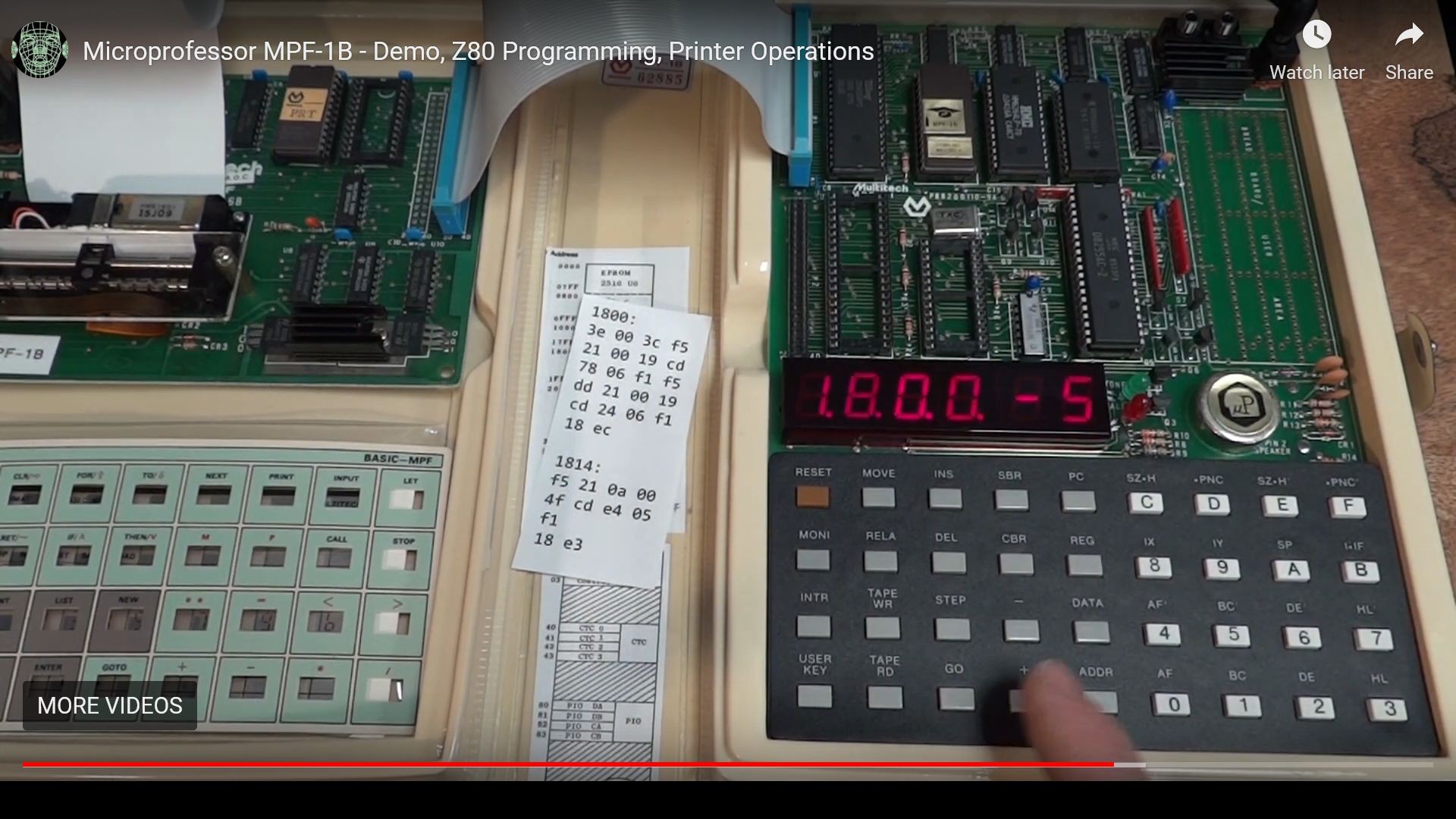
even in the early 80s. I started my journey into computer programming on a similar system, the Busch 2090 Microtronic:
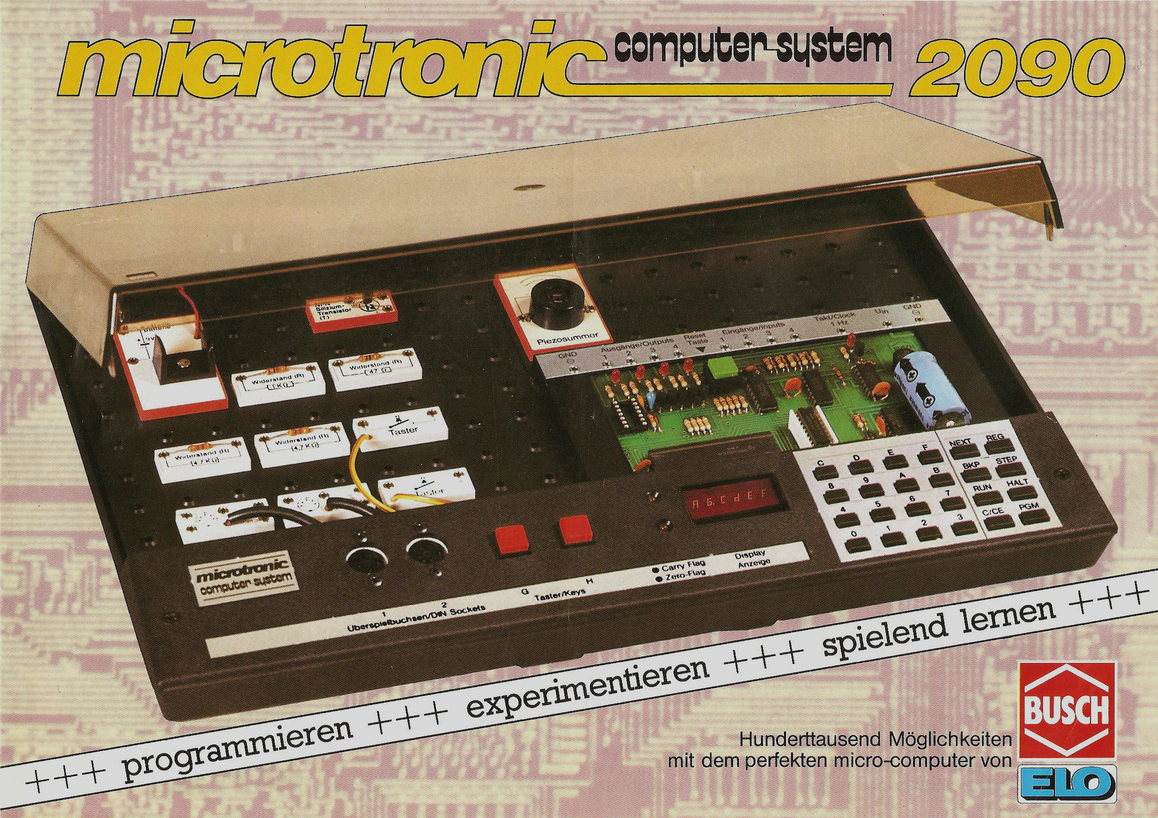
At the time the Multitech Microprofessor MPF-1B was becoming popular in my hometown Hamburg / Germany, I was about 12 years old. I then got the Microtronic at the age of 13, and it was certainly a better choice for my juvenile brain. However, the Microprofessor just seemed so much more capable and professional. So much I did realize.
Fast forward ~ 34 years later, I started adding a number of Microprofessors to my collection of retro computers. Since 2016, I added:
- professor Wichit Sirichote's modern re-implementation, extended version of the MPF-1B, the CPU 80 from his Build your own microcontroller kit series of single board computers
- the MPF-1B with printer
- the MPF-IP ("I" Plus, or 1 Plus?) with alphanumeric VFD display (!), and printer
- and another MPF-IP.
So by now I have 1 MPF-1B, 2 MPF-1P, 2 printers (they are identical expect for their EPROMS - I have one set up for the MPF-1B, and one for the MPF-1P), BASIC and Forth EPROMs for the 1P, and BASIC for the 1B. I also extended the SRAMs of these machines; i.e., my MPF-1B has 8 KBs of SRAM by now.
Here are a few pictures of my two MFP-IP's; one is set up for Forth, the other one for BASIC:
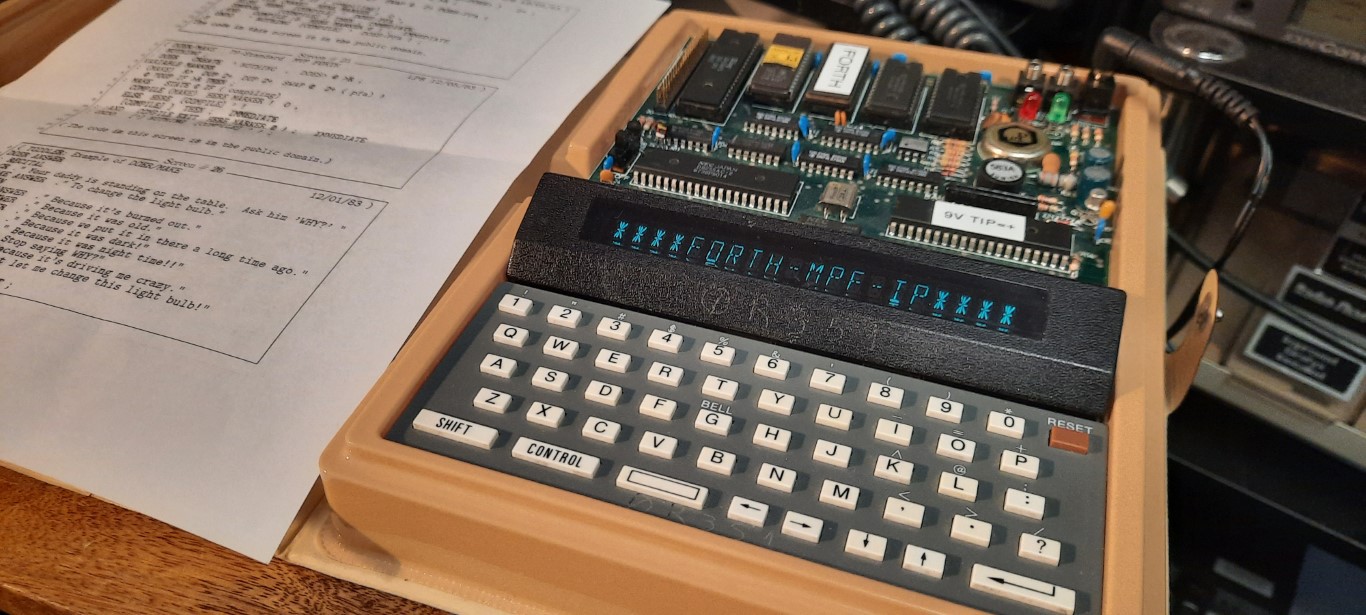
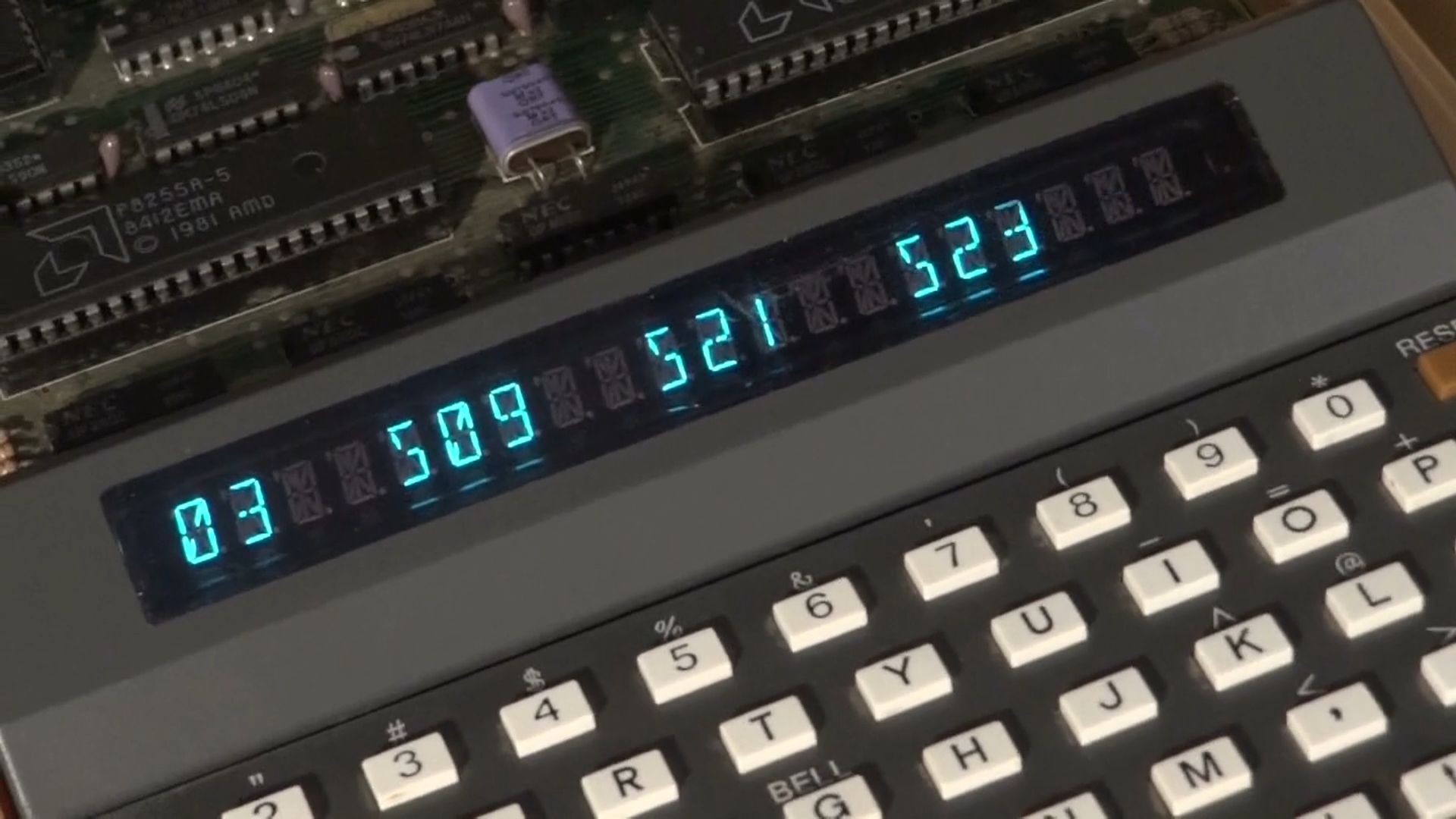
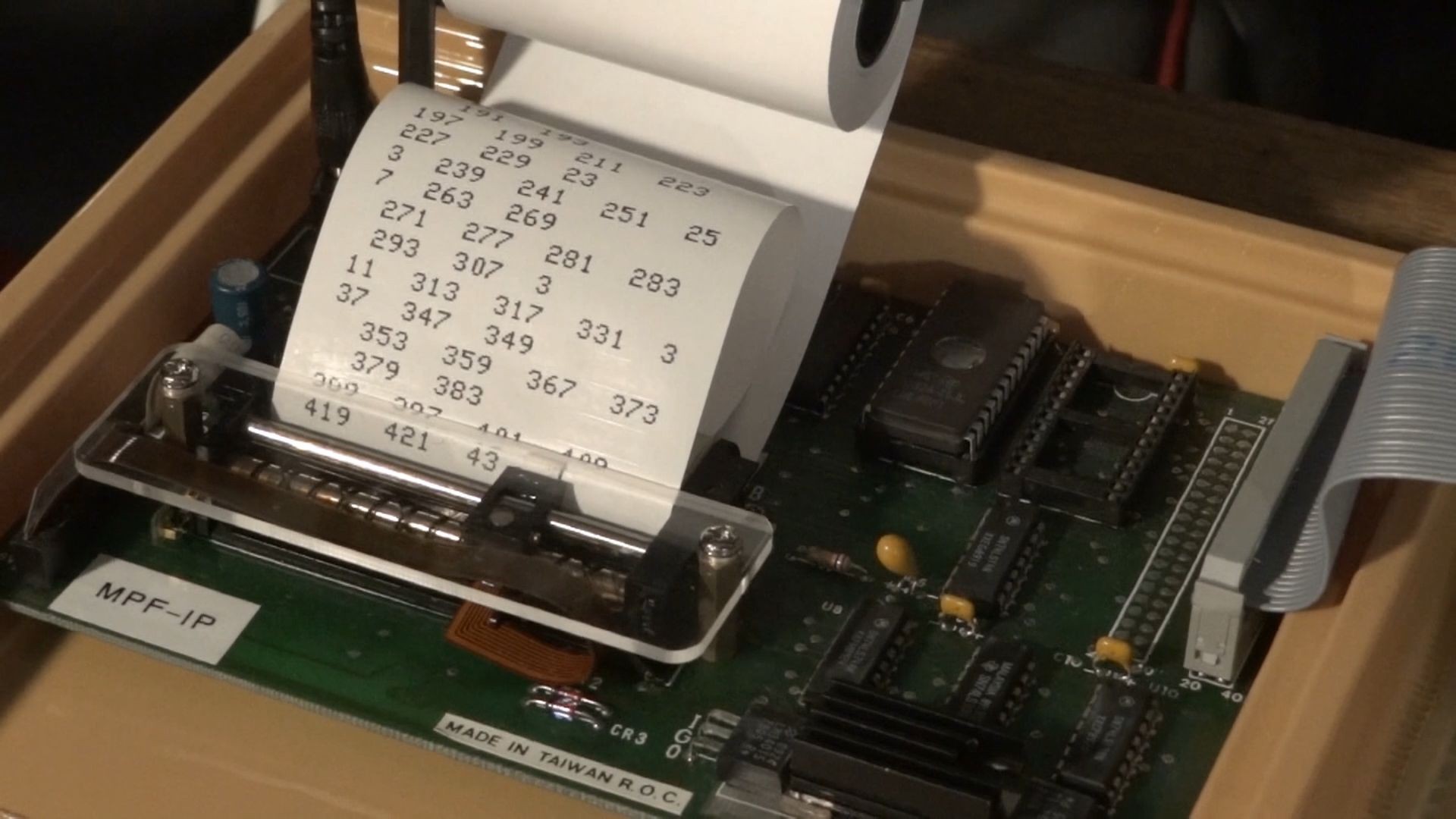
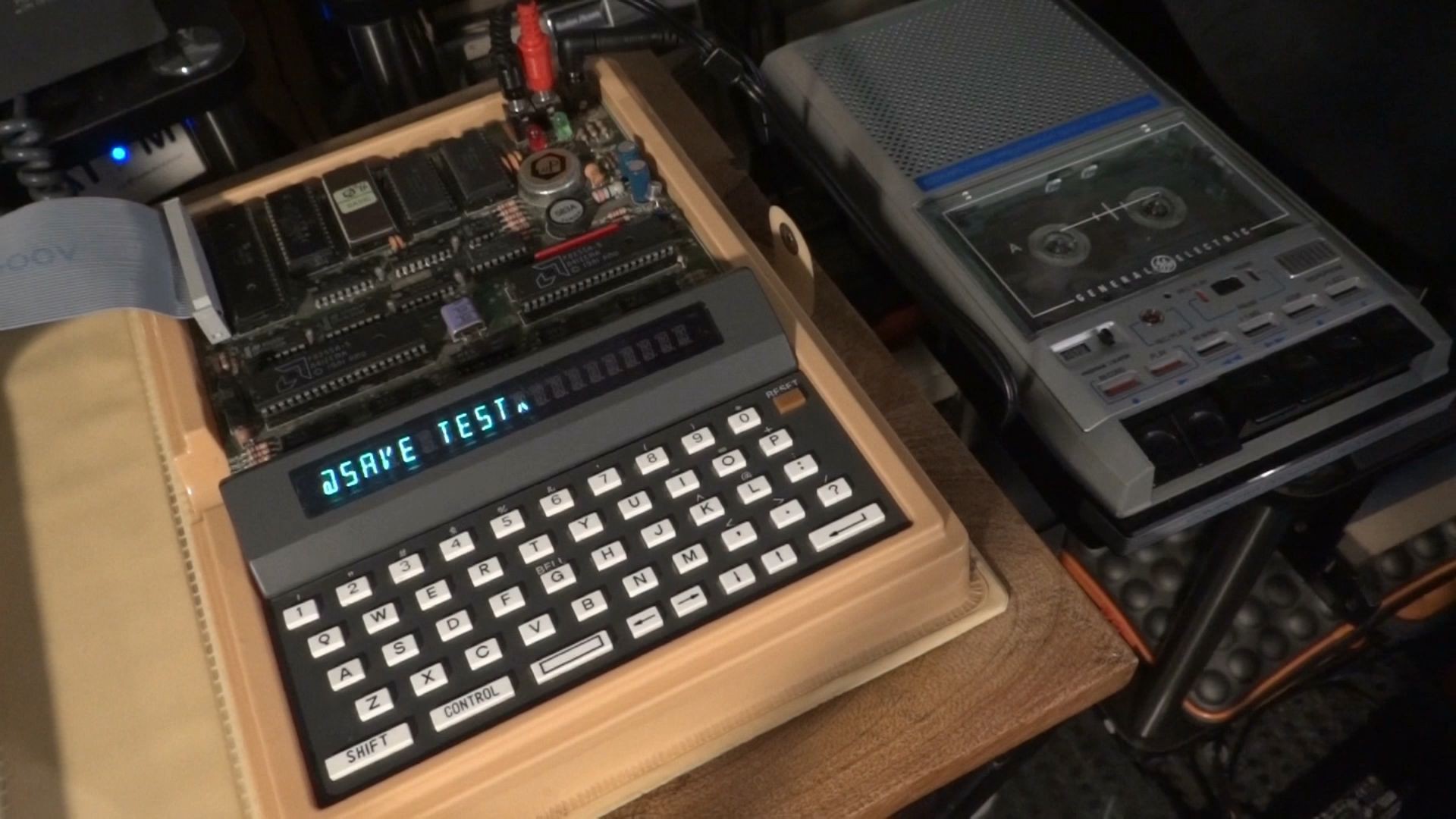
This Hackaday project is an ongoing documentation of my exploration into the wonderful world of Microprofessor machines. By now, I have made a number of videos - stay tuned for future updates!
MPF-1B Part 1: Monitor, Z80 machine code, printer, disassembler.
MPF-1B Part 2: Palo Alto TinyBASIC.
A modern, extended version of the MPF-1B Part 3: "CPU 80" by Prof. Wichit Sirichote.
MPF-IP Part 1
- board overview / review
- monitor
- line assembler
- editor
- 2pass assembler
- printer
MPF-IP Part 2: BASIC
- BASIC installation
- Ssieve of Erastosthenes
- prime numbers
- printer
- cassette storage
- ZX81
MPF-IP Part 3: FORTH, Part 1
- FORTH
- installation
- documentation
- background
- history
- comments on meta-programming and comparison to Lisp
- stack
- Reverse Polish Notation (RPN)
- HP calculators
- basic FORTH operations
- user-defined words
- outlook to upcoming videos
MPF-IP Part 4: FORTH, Part 2
- ." string printing
- interpreter
- dictionary / vlist
- colon (:) compiler
- bottom-up programming philosophy
- compound words
- notes on forward-references and recursion
- do ... loop
- iterative definition of factorial
- relational operators
- if... else... then
MPF-IP Part 5: FORTH, Part 3 - THE DARK SIDE OF THE FORTH
Well, still no recursive definitions; too much ground needed to be covered first - but next time!
- The dark side of the Forth
- FORTH vs LISP
- under the hood
- the structure of words
- dictionary
- code field
- parameter field
- LFA, PFA, CFA
- ' (TICK)
- modifying definitions
- execute
- variables
- address interpreter
- defining words
- create
- , (COMMA)
- DOES>
- user-defined defining words
MPF-IP Part 5: FORTH, Part Forth umm 4 - Recursion in FORTH
Finally, we have everything to define recursive words! This is going to be a little bit longer (over an hour), but you will learn the following:
- compiling words
- IMMEDIATE
- LATEST
- COMPILE, EXECUTE, LITERAL
- comma (,)
- recursive definition of factorial
- compilation execution: (* ... *)
- vectored execution
- indirect recursive definitions: ODD & EVEN
- LABEL, REC, DEF
- FORTH books
- Outlook: DOER/MAKE on the Microprofessor
MPF-IP Part 6: FORTH, Part 5 - DOER/MAKE
The pinnacle of my Forth exploration - as promised, we are developing a simplified version of the infamous DOER / MAKE constructs from Leo Brodie's "Thinking Forth" book for the Microprofessor, and demonstrate its application by implementing yet another recursive version of the factorial function. Since DOER / MAKE is using the return stack to pass control we are also spending some time discussing flow of control via the return stack, as well...
Read more » Michael Wessel
Michael Wessel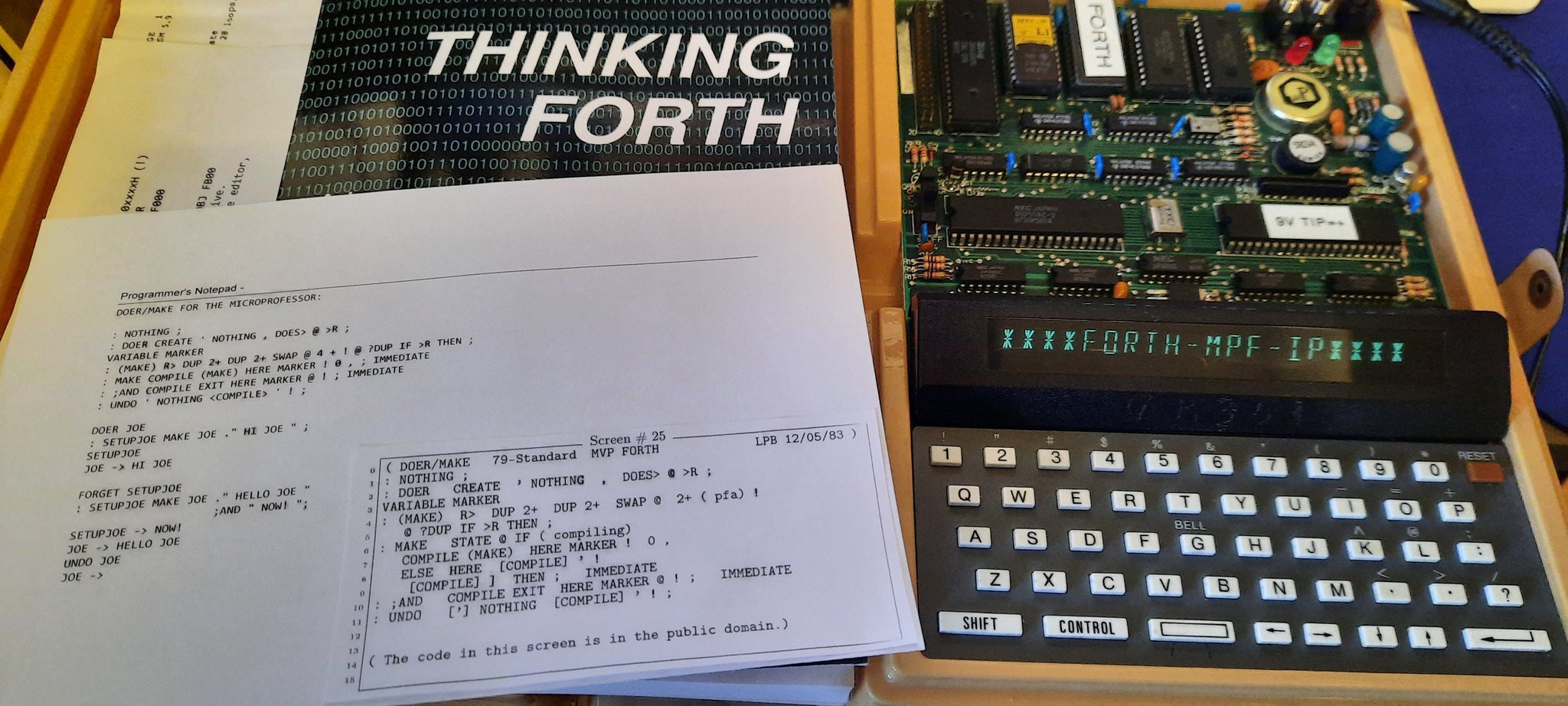


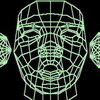
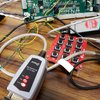

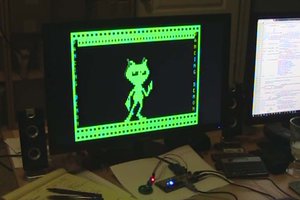
 ziggurat29
ziggurat29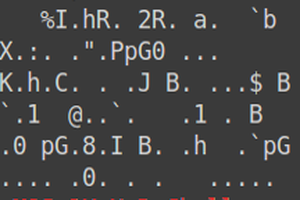
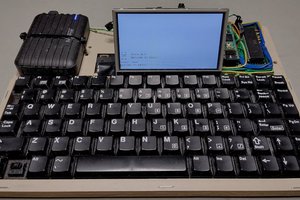
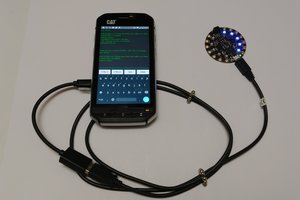
 foamyguy
foamyguy
YESSSSSS
/
Jaaaa !!!!